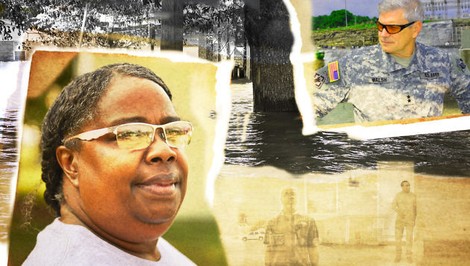Your podcast discovery platform
Curious minds select the most fascinating podcasts from around the world. Discover hand-piqd audio recommendations on your favorite topics.

piqer for: piqd Boom and bust Climate and Environment Global finds Globalization and politics Health and Sanity Technology and society Doing Good Deep Dives
Malia Politzer is the executive editor of piqd.com, and an award-winning long-form journalist based out of Spain. She specializes in reporting on migration, international development, human rights issues and investigative reporting.
Originally from California, she's lived in China, Spain, Mexico and India, and reported from various countries in Africa, Europe and the Middle East. Her primary beats relate to immigration, economics and international development. She has published articles in Huffington Post Highline, The Economist, The Wall Street Journal, Vogue India, Mint, Far Eastern Economic Review, Foreign Policy, Reason Magazine, and the Phoenix New Times. She is also a regular contributor to Devex.
Her Huffington Post Highline series, "The 21st Century Gold Rush" won awards from the National Association of Magazine Editors, Overseas Press Club, and American Society of Newspaper Editors. She's also won multiple awards for feature writing in India and the United States.
Her reporting has been supported by the Pulitzer Center on Crisis Reporting, The Institute For Current World Affairs, and the Global Migration Grant.
Degrees include a BA from Hampshire College and MS from Columbia University Graduate School of Journalism, where was a Stabile Fellow at the Center for Investigative Journalism.
Podcast: Flood Thy Neighbor—Deciding Who Gets Protection From Climate Change, And Who Doesn't
This podcast from Reveal zooms in to a small a town alongside the Mississippi River in the US state of Missouri. Primarily populated by African Americans, the town's entire population lost their homes and land to a flood in 2011.
The investigative reporters revealed that the flooding was deliberate, rather than inevitable: In fact, a group of Army Corps engineers intentionally blew up a levee to keep it from flooding nearby farms, knowing that it would instead flood the small town.
The podcast episode delves into the economic decision-making behind this choice, which was a catastrophe for the people affected by it. It's also a fascinating and disturbing look into the kinds of decisions that policymakers, urban planners, and governments will have to make as climate change affects more and more people.
In the US, the Army Corps of Engineers is responsible for reducing flood risks across rivers and coasts around the country, and to do so in a way that benefits the country economically. To achieve this, they rely on cost-benefit calculations.
The problem with these calculations is they often prioritize highly valued (read: wealthy) properties over less affluent ones—which means that already marginalized communities are the ones most affected, while wealthier communities are spared.
In addition to the podcast, the Reveal series also includes an in-depth investigative article and a video that explains how levees work, how they are built, and how they can put surrounding communities at greater risk of flooding.
The entire series is very well done. But what gave me chills is how it foreshadows the sorts of difficult decisions that most countries will soon be forced to reckon with—and how already marginalized groups are likely to bear the brunt of climate distress.
Stay up to date – with a newsletter from your channel on piqd.
